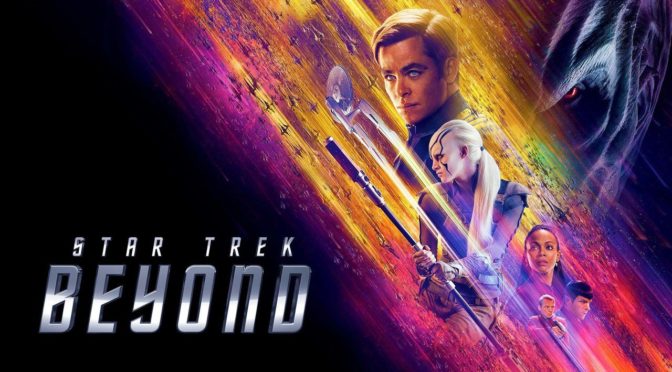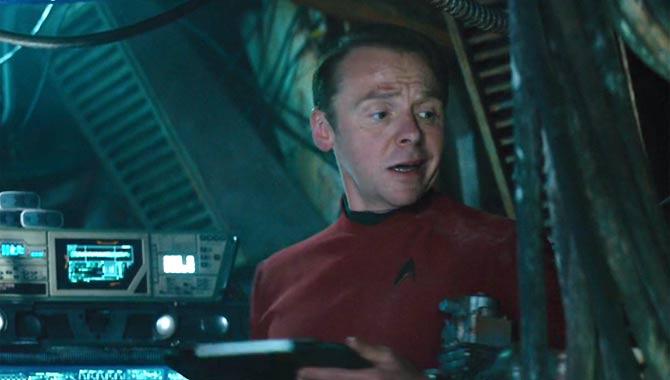Whether it’s used to enhance an emotion or add an interesting contrast, music has always been intertwined with movies. Some of my favorite scenes in all of cinema rely heavily on their music and last year’s lineup was no exception. Here are the best musical moments of 2016, in no particular order. Some minor spoilers follow, but will be called out before each movie as needed.
Captain Fantastic – Sweet Child O’ Mine
Beginning with gentle acapella vocals, this rendition of Sweet Child O’ Mine starts out as an elegiac goodbye to a lost loved one and the past they carried with them. The children in the film are about to start a new chapter of their lives, but before the melancholy sets in they switch to a rousing, upbeat, acoustic sing-a-long. The jump in tone exemplifies the family’s resilience as they quickly move beyond their sorrow to face the future ahead, remembering the joy their mother brought them rather than their sadness at her absence.
Sing Street – Up
This is probably the most difficult film to pick an entry from, but also the most deserving. Like John Carney’s previous movies, Sing Street is filled with amazing original music. The film is an ode to the music of the 80’s and its songs come straight from the youthful hearts of the band members. Up may be my personal favorite from the soundtrack. It’s a boy basking the ups and downs of his first love. The vocals lift off to new heights as the singer experiences his first feelings of romance. His genuine naivete and joy are infectious. Be sure to also check out the other songs from the film.
Everybody Wants Some!! – Rapper’s Delight
The characters’ aggressive hypermasculinity of Everybody Wants Some!! was often repulsive as they continued to turn on each other for the slightest appearance of victory. However, their one moment of unity was in a short car drive. Between trading insults, they take a break to sing when the Sugarhill Gang comes on the radio. Their playful handoffs finally reveal the deep comradery hidden underneath the insults they normally hurl at each. It’s a welcome, exuberant expression of male friendship.
Girl Asleep – You Make Me Feel
An unwanted birthday party with everyone in your school invited is a wallflower’s worst nightmare. As the film’s shy lead stands in fear, the celebration ends up being something far beyond the normal. The party becomes surreal as each classmate dances their way in and drops off their gift. Just when it feels like things are back to normal the entire crowd erupts into an unexpected, synchronized dance number. It might be far-fetched but the 70s spirit is too contagious for anyone to care. This scene is a glorious abstraction and one of the grooviest moments of the year.
Hardcore Henry – Don’t Stop Me Now
As if Hardcore Henry’s action scenes weren’t exaggerated enough, the director uses Freddie Mercury’s bellowing vocals to take the film to the next level. Caught in a state of weakness and surrounded by enemies, Henry double fists shots of adrenaline and jumps back into the thick of it. The Queen song best exemplifies the film’s gleeful take on violence and has oddly appropriate lyrics. This isn’t about serious fighting. It’s a respite from the gritty realism of many modern action movies and a celebration of the euphoria that can be created with well-choreographed violence.
American Honey – American Honey
When the titular track finally plays, it’s more than background music, it’s a culmination of the lead’s aimless life. The song’s sweet, nostalgic vocals reminisce on a past long gone. For Star (Sasha Lane), it creates a moment of realization of what her journey has been and will continue to be. It’s a redefinition of what the American Dream is to young people like her. Not a path of upwards mobility, but a horizon of limited opportunity. As she looks around at the troubled youth just like her, the song becomes a farewell to her aspirations and an acceptance of her constrained future.
Swiss Army Man – Montage
Last year’s weirdest film also came with the most meta musical moment: a montage featuring an acapella track titled “Montage”. The strangely anthemic vocals underscore an uplifting spirit and narrate the actions onscreen as we discover just how many odd uses the corpse of Daniel Radcliffe has. It’s the arts-and-crafts quirkiness of Michel Gondry combined with Spielberg’s sentimentalism as the bond between the two leads grows and allows them to escape their own loneliness – and use a dead body as a machine gun. Honorable mention must be given to the film’s use of the Jurassic Park Theme. Remember: “If you don’t know Jurassic Park, you don’t know shit”.
Toni Erdmann – Greatest Love of All
A series of increasingly uncomfortable interactions created by an eccentric father trying to be involved in the life of his stressed out straight-laced daughter build to a moment of what could be pure embarrassment. Ines (Sandra Hüller) is forced to sing in front of strangers, something she is completely unprepared for and her performance is as cringe-inducing as it is funny. Her singing begins shyly as it takes several intros for her to even start but she unexpectedly escalates into a full, committed performance. Each note belted out and every sassy expression on her face is a masterclass in awkward amusement.
La La Land – Audition (The Fools Who Dream)
My opinions on La La Land were much more lukewarm than most, but the real standout moment of the film is during a crucial audition. Mia (Emma Stone) has been crushed by her constant rejection as an actress and only returns to Hollywood at the behest of her boyfriend. Instead of being guarded, she opens herself up and delivers a personal tale. The background fades to black as Stone’s increasingly mournful expression dominates the frame with a painful ballad of pursuing one’s dreams at all costs. The vulnerability and reflection of her unsuccessful career turn the song into an aching eulogy for her own failed aspirations.
Star Trek Beyond – Sabotage (SPOILERS)
Director Justin Lin brought a fun, frenetic energy to the action of Star Trek Beyond and nowhere is this more apparent than in the finale. After being attacked by a horde of interconnected spaceships, the only solution is to beam low-tech radio at the frequency of their communications and disrupt their flight patterns. Instead of some forgettable signal, the only available transmission is a Beastie Boys song. Their anti-establishment spirit and the silly setup make the film’s climax a playful wave of explosions that stick it to the man (err…bad alien).



